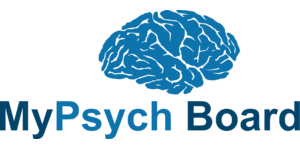How To Manage Stress

Stress is a part of everyone’s life. No matter where or who you are, you can’t get away from it. While stress is not intrinsically bad, when you don’t have coping skills it can wreak havoc on your life and wellbeing. Some stress is adaptive and helpful, like the nudge that gets you to crack open your textbooks and study for the exam coming up. But when it becomes overwhelming and unmanageable, it’s time to look at some options for help.
High Stress = Sympathetic Takeover
You might not realize it, but when you’re experiencing high levels of stress, your sympathetic nervous system gears up and causes your body to enter “fight or flight/freeze”. This in turn leads to high levels of cortisol and adrenaline being released, your heart rate and blood pressure increase, and your prefrontal cortex takes a back seat to other areas of the brain, such as the hindbrain. Your body and brain are looking for a threat in your environment to eliminate, run away from, or freeze to avoid. When the stresses you are dealing with are not tactile, you can be stuck in this state for long periods of time. This wears your body down, creates mental fatigue, and keeps you from thriving.
Something that can make a profound difference in how stress effects your life is your ability to emotionally regulate. The process of regulation works by calming your nervous system. It takes your body out of sympathetic nervous system control, and gives part of it back to the parasympathetic system. When this occurs, your body relaxes, your breathing, heart rate, and blood pressure stabilize, and your prefrontal cortex is able to take primary control for executive functioning. So how does one regulate?
Emotional Regulation = Parasympathetic involvement
It seems like it should be a no-brainer, but almost everyone has to learn how to regulate themselves at some point. Regulation requires full neurological functioning, that is, children who are still undergoing high levels of neural development are unable to achieve self-regulation on their own. Adults, however, even if they were never explicitly taught how to, are able to do this with some intentionality. Methods can be as simple as stopping when you notice your emotions are running high, naming what you feel, and validating that feeling.
Other ways to regulate in a heightened state are to stop, close your eyes, and take deep breaths. Intentional calming of the body and nervous system brings the parasympathetic nervous system back online, which helps you take rational stock of what is happening.
When you’re not in the middle of crisis, it’s helpful to be proactive in managing stress. This can involve talk therapy (a counselor or a trusted friend) to work through an ongoing issue; it can be journaling to identify what triggers your emotions into running wild; it can be engaging in exercise to work off steam when there are things out of your control.
Emotional regulation is an important part of wellbeing that everyone should be aware of, even if they are unable to achieve it all the time. Working toward being able to take control over your emotional state is a worthwhile goal, and one that should be at the top of your list if this is something you struggle with. Additionally, asking for help is a great step towards helping yourself.
Coping with stress can help your physical and mental health. If you want to talk with someone about this topic further, contact us for more information! Your wellbeing is worth it.

